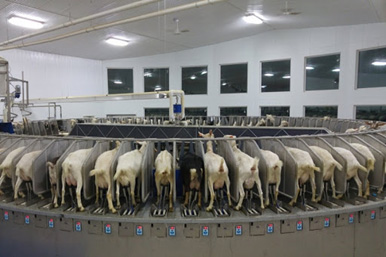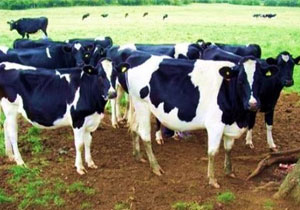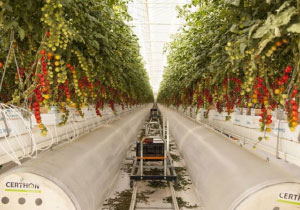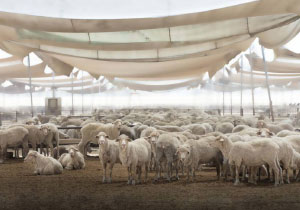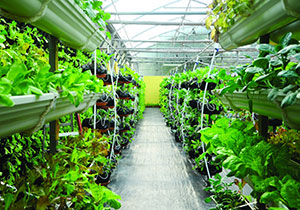Milking hall (Goat and Sheep)
- Super User
- Goat and sheep-Milking hall
- Hits: 291
Milking hall
The building of a milking hall is one of the most important issues to be considered in nurturing dairy goats. Goats are transferred and milked there twice or three times. The most amount of milk is produced in 2nd to 10th weeks after childbirth and after that goat's milk production decreased daily. The period of breastfeeding depends on race, management procedure, and feed quality and quantity. Milking of goats may be done by hand or milking machinery but in both cases, a separate and hygienic place should be provided in the ranch for milking of goats. In villages or small ranches, goats may be milked by hands, but in large ranches for simplicity and acceleration of milking, they use an instrument.
In the determination of the milking hall area, one should forecast the dimensions and number of milking platforms, feeding aisles, stalls, dishwashing places, temporary places of milk storage, and laborers' crossing paths. Based on advice, one can determine the milking hall area considering the herds' number, equivalent to 10% of the goats' resting place.
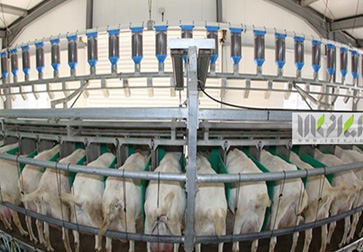
Health conditions of milking
The materials used in the floors and walls of the milking hall should be sanitary and washable. Maybe using concrete (in case of appropriate price) is the best choice to build milking hall's floor. To cover the walls one can use cement, mosaics, or any other washable material. Enough light and ventilation in the milking hall are necessary. Because pouring water and producing steam cause an increase in moisture and a decrease in ventilation.
Using mesh to devise behind the window, avoid entering the insects into the hall and polluting the milk. To ensure the herds’ health and prevention of possible pollution, tidiness of the milking hall should be implemented regularly and after each stage of milking.
